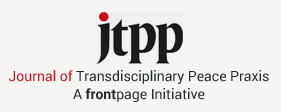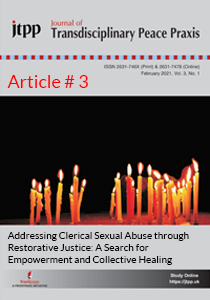Description
Addressing Clerical Sexual Abuse through Restorative Justice: A Search for Empowerment and Collective Healing
Jonathan Chukwuemeka Madu (Head, Department of Entrepreneurial Studies, Michael Okpara University of Agriculture, Nigeria)
There have been highly publicised instances of alleged sexual abuse within the Roman Catholic Church with profoundly negative consequences on the victims, offenders, the Church and society.
One long-term response has been calls to allow the Catholic clergy to marry; while for many, the offenders should face criminal justice. There are reasons to believe that none of these may bring about the desired outcome.
Criminal justice system often works on a retributive foundation, imposing pain, suffering, or deprivation of liberty on the offender and may, on the other hand, silence the victims leaving them still frustrated. However, for restorative justice, healing the damaged relationships is the focus; involving all the affected parties to collectively identify and address harms, needs, and obligations, in order to heal and put things as right as possible.
Applying sociological paradigm on power, empowerment, social bonding and sexual morality, and using case studies and documentary sources, this article argues that restorative justice would respect the humanity of the offenders and create a way to promote accountability and personal healing as the offending individuals receive support to make things right not only for their victims but also for themselves and the community. As those who offend and the victims heal, so does the community.





